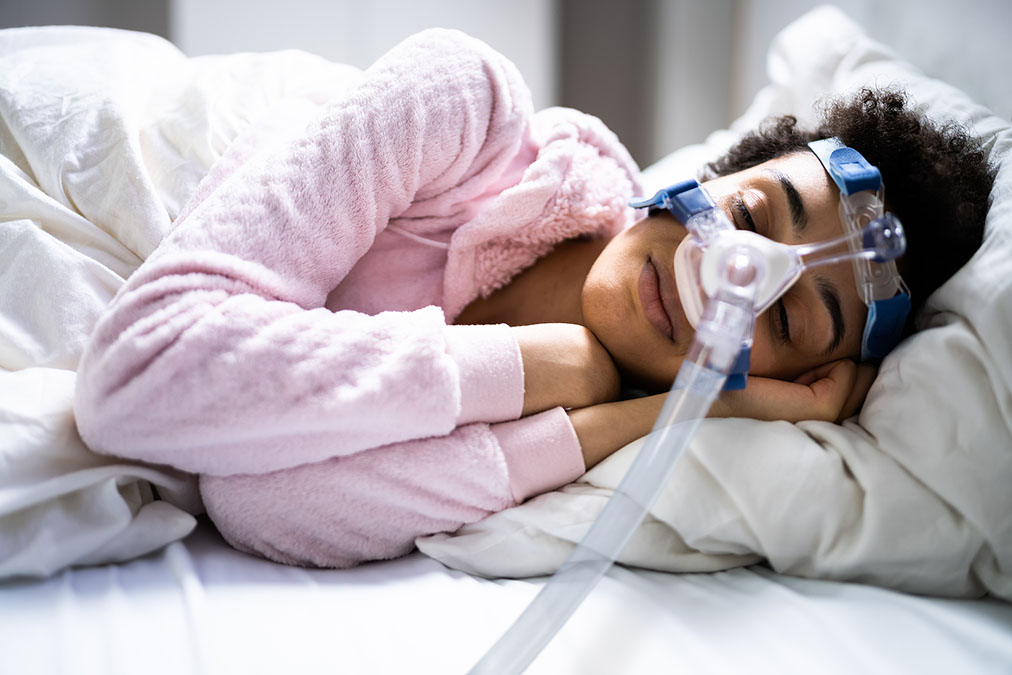 Sleep apnea has a long list of life-threatening effects, such as high blood pressure, heart attack, and stroke.
Sleep apnea has a long list of life-threatening effects, such as high blood pressure, heart attack, and stroke.
Depression is even more dangerous, with a survival rate lower than some cancers.
Could one of these diseases cause the other? That would be truly terrifying. A new study in BMC Public Health examined this question.
Information was gathered from the National Health and Nutrition Examination Survey (NHANES) spanning from 2005 to 2018, which involved a total of 9,817 participants.
To determine the presence of sleep apnea, participants completed a questionnaire on sleep disorders.
Depressive symptoms were evaluated using the 9-item Patient Health Questionnaire (PHQ-9).
Predictably, those with sleep apnea were more likely to be older, male, obese, have shorter sleep durations, drink alcohol, have diabetes, have high blood pressure, have coronary heart disease, and have had a stroke.
The analysis yielded the following results about depression.
-
1. Among participants who did not have sleep apnea, 6.6% had a depression score of 10 or more, indicating depression, whereas 13.7% of participants with sleep apnea had a depression score of 10 or more.
2. Those with sleep apnea were 1.36 times more likely to experience depression.
3. The more severe the sleep apnea was, the more severe the depressive symptoms were.
4. Sleep apnea was linked to increased depression in all subgroups of participants, except in those with coronary artery disease.
5. The link between sleep apnea and depression was stronger among overweight and obese participants than among other participants.
These results show a terrifying connection between sleep apnea and depression.
Not everyone with sleep apnea suffers from depression. However, you might want to consider how it’s affecting your mood.

 Multiple Sclerosis
Multiple Sclerosis Banishing Bronchitis
Banishing Bronchitis Gum Disease Gone
Gum Disease Gone Overcoming Onychomycosis
Overcoming Onychomycosis Neuropathy No More
Neuropathy No More The Prostate Protocol
The Prostate Protocol Brain Booster
Brain Booster
 Ironbound
Ironbound
 Solution for Shingles
Solution for Shingles
 The Bone Density Solution
The Bone Density Solution
 The Ultimate Healing Protocol
The Ultimate Healing Protocol
 The Parkinson's Protocol
The Parkinson's Protocol
 The Chronic Kidney Disease Solution
The Chronic Kidney Disease Solution
 Overthrowing Anxiety
Overthrowing Anxiety The Fatty Liver Solution
The Fatty Liver Solution The Hypothyroidism Solution
The Hypothyroidism Solution
 The End of Gout
The End of Gout The Blood Pressure Program
The Blood Pressure Program
 The Oxigized Cholesterol Strategy
The Oxigized Cholesterol Strategy
 Stop Snoring And Sleep Apnea Program
Stop Snoring And Sleep Apnea Program
 The Arthritis Strategy
The Arthritis Strategy The Vertigo & Dizziness Program
The Vertigo & Dizziness Program The 3-Step Diabetes Strategy
The 3-Step Diabetes Strategy Hemorrhoids Healing Protocol
Hemorrhoids Healing Protocol The Erectile Dysfunction Master
The Erectile Dysfunction Master Weight Loss Breeze
Weight Loss Breeze The IBS Program
The IBS Program The Insomnia Program
The Insomnia Program The Migraine and Headache Program
The Migraine and Headache Program The Neck Pain Solution
The Neck Pain Solution The Menopause Solution
The Menopause Solution The Ejaculation Master
The Ejaculation Master The TMJ Solution
The TMJ Solution The Acid Reflux Solution
The Acid Reflux Solution The Fibromyalgia Solution
The Fibromyalgia Solution The Psoriasis Strategy
The Psoriasis Strategy